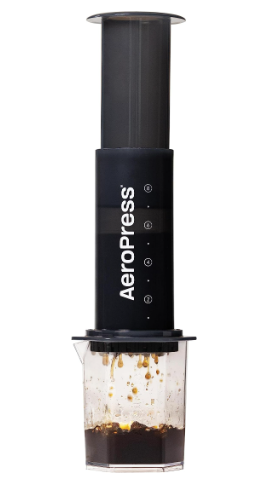Caffeine and the Brain: How Brewed Drinks Affect Cognition
BLOG NEWS
10/10/20254 min read


Understanding Caffeine: What It Is and How It Works
Caffeine is a naturally occurring stimulant most commonly found in coffee, tea, and various energy drinks. Its chemical structure is classified as a methylxanthine, with the molecular formula C8H10N4O2. This compound functions as a central nervous system stimulant by increasing alertness and reducing the perception of fatigue. The primary mechanism through which caffeine affects the brain involves its interaction with adenosine receptors.
Adenosine is a neurotransmitter that typically promotes relaxation and sleepiness. Under normal circumstances, adenosine levels build up in the brain throughout the day, leading to increased feelings of drowsiness. Caffeine works by competitively binding to adenosine receptors, effectively blocking adenosine from exerting its calming effects. As a result, neuronal activity is enhanced, stimulating the release of other neurotransmitters such as dopamine and norepinephrine, which further promote wakefulness and cognitive function.
Caffeine is predominantly consumed through brewed beverages. Coffee, often recognized for its high caffeine content, can contain approximately 95 mg of caffeine per 8-ounce cup, depending on the brewing method and type of beans used. On the other hand, tea generally has lower levels of caffeine, ranging from 30 to 50 mg per 8-ounce serving, influenced by factors such as steeping time and the type of tea leaves. Energy drinks may vary widely in caffeine concentration, sometimes exceeding 300 mg per serving, which can significantly impact cognitive function depending on individual tolerance and the simultaneous presence of other ingredients such as sugars and vitamins.
Understanding the diverse sources and forms of caffeine is crucial, as these variations can influence cognitive outcomes. For instance, while coffee is often associated with rapid increases in alertness, tea may provide a more gradual and sustained effect due to its L-theanine content, which promotes relaxation without inducing drowsiness. As such, the choice of beverage may play a critical role in how caffeine affects cognitive performance.
Caffeine's Impact on Alertness and Attention
Caffeine is a widely consumed stimulant known for its ability to enhance alertness and attention. Numerous studies have demonstrated that caffeine intake can lead to significant improvements in various aspects of cognitive function, particularly in enhancing focus and reaction time. When consumed in moderate amounts, caffeine stimulates the central nervous system by blocking adenosine receptors, which in turn reduces feelings of fatigue and promotes wakefulness. This mechanism contributes to a heightened state of alertness, allowing individuals to perform tasks with improved concentration.
Research indicates that an optimal dosage of caffeine, ranging from 40mg to 300mg per day, can yield the best cognitive benefits without adverse effects. For example, a cup of coffee typically contains about 95mg of caffeine, which has been shown to positively influence mental performance, particularly in scenarios requiring sustained attention. Importantly, the timing of caffeine consumption can also play a crucial role; consuming caffeine shortly before tasks that demand prolonged focus may maximize its cognitive enhancing effects.
Nevertheless, it is essential to consider individual differences in caffeine metabolism. Factors such as genetic variability, habitual consumption, and personal sensitivity can lead to varying responses to caffeine intake. Some individuals may experience heightened alertness and enhanced cognitive performance, while others may suffer from increased anxiety or jitteriness upon consumption. Excessive caffeine intake, defined as more than 400mg per day, can also result in negative side effects, including insomnia and increased heart rate. Therefore, understanding one’s own tolerance and sensitivity to caffeine is paramount in achieving the desired cognitive benefits effectively.
The Role of Caffeine in Memory and Learning
Caffeine, a central nervous system stimulant, has been the subject of numerous studies examining its impact on memory and learning. Research suggests that caffeine can enhance both short-term and long-term memory retention, thereby influencing the cognitive process significantly. In particular, studies have shown that caffeine consumption before or after learning tasks can lead to improved recall, indicating a positive correlation between caffeine intake and memory tasks.
One important factor to consider is the timing of caffeine consumption in relation to learning activities. For instance, studies reveal that when caffeine is ingested shortly after learning, it may facilitate memory consolidation—the process through which temporary memories are transformed into stable, long-term representations. This can be particularly beneficial for students or individuals engaged in intensive learning experiences. By optimizing cognitive performance through caffeine ingestion, individuals may find themselves better equipped to absorb and retain new information.
However, while caffeine presents several advantages in memory enhancement, it is crucial to address its potential drawbacks. Excessive caffeine intake may lead to sleep disturbances. Poor sleep quality can impair cognitive functions, including memory formation and recall. Research has shown that sleep plays a vital role in memory consolidation; therefore, if caffeine consumption leads to insufficient or disrupted sleep, it could negate the benefits gained during periods of wakefulness. Moreover, excessive caffeine may contribute to anxiety, which can further inhibit cognitive performance.
In essence, while caffeine can bolster memory and learning through its stimulating effects, it is essential to balance its consumption with considerations regarding sleep and overall well-being. Understanding the nuances of caffeine's role in cognitive processes can aid individuals in maximizing their learning potential while minimizing adverse effects.
Balancing Caffeine Consumption: Benefits and Drawbacks
Caffeine is widely recognized for its stimulating effects, playing a vital role in enhancing alertness and productivity. Consuming caffeinated beverages, such as coffee and tea, can lead to significant improvements in cognitive function, including heightened attention, improved reaction time, and boosted memory. These benefits are particularly advantageous for individuals needing support during long working hours or extensive study sessions. Additionally, moderate caffeine consumption may enhance mood, contributing to overall well-being and making daily tasks feel more manageable.
However, it is essential to recognize the drawbacks associated with excessive caffeine intake. Overconsumption can lead to various adverse effects, including increased heart rate, anxiety, and insomnia. As the body becomes reliant on caffeine, individuals may experience withdrawal symptoms, leading to a cycle of heightened consumption to alleviate these effects. Furthermore, excessive intake can result in jitteriness and distractibility, ultimately impeding rather than improving cognitive performance.
To maximize the benefits of caffeine while minimizing its negative consequences, it is important to adopt a balanced approach. Individuals should consider limiting their daily caffeine intake to about 400 milligrams, equivalent to approximately four 8-ounce cups of brewed coffee. Spacing out caffeine consumption throughout the day may also help mitigate potential side effects. It is beneficial to avoid caffeine in the hours leading up to sleep, as it can disrupt sleep patterns and contribute to fatigue in the long run. Additionally, individuals should be mindful of their own tolerance levels and adjust their intake accordingly, as sensitivity to caffeine varies from person to person.
In conclusion, while caffeine can serve as a valuable cognitive enhancer, a balanced approach to its consumption is essential. By staying informed about both the benefits and drawbacks of caffeine and integrating it thoughtfully into daily routines, individuals can optimize their cognitive performance and overall well-being.
One of our most eco-friendly coffee makers..
AeroPressXL Coffee press


Click 'Shop Now!' to find on Amazon now....
Specs
The AeroPress XL is an upsized version of the original AeroPress coffee maker, designed to brew larger volumes while maintaining the core benefits of its unique immersion and pressure-based method. It holds about 20 fluid ounces (around 590 ml), allowing users to make up to two full cups of coffee or several espresso-style shots in one press. The device is made from BPA-free plastic, and it comes with a shatterproof Tritan carafe designed to handle the increased brew size. Its dimensions are roughly 4 inches in diameter by 10 inches tall, making it significantly larger than the standard model. The brewing method combines immersion, aeration, and micro-filtration, delivering a smooth, low-acidity cup of coffee. The kit includes 100 XL-specific micro filters, a scoop, stirrer, and the custom carafe.
Pros and Cons
Pros
One of the biggest advantages of the AeroPress XL is its increased capacity. If you’re someone who often makes coffee for two or more people, or simply wants more in one go, this model saves time and effort compared to repeating brews with the original. It still delivers a clean, rich cup thanks to its fine paper filters and pressure-based brewing. The unit is lightweight yet durable, making it suitable for home or travel, and cleaning is straightforward—grounds eject cleanly and parts rinse off easily. You also retain control over brew time, temperature, and grind size, which makes it great for dialing in your personal taste preferences.
Cons
However, its larger size does come with drawbacks. The brewer is taller and bulkier, which may not suit small kitchens or tight travel setups. It also uses different filters than the original AeroPress, meaning you can’t interchange accessories or use third-party options built for the standard model. Handling the increased hot water volume requires more care, especially when pressing, as the unit can become top-heavy and harder to stabilize. The included carafe, while functional, lacks a handle, making pouring less ergonomic, particularly when it's full. Also, the overall design may feel less portable than what AeroPress fans are used to.
Our Review
The AeroPress XL successfully brings the beloved brewing qualities of the original to a larger format, and it does so without compromising on taste. We found the coffee produced to be consistently smooth, aromatic, and free of the bitterness or grit you might get with French press or other manual methods. The extra capacity makes it ideal for households, office use, or anyone who wants more than just a single cup. It still brews fast, with most cups done in under two minutes, and the cleanup remains one of the easiest among manual brewers.
That said, the bigger size changes the user experience slightly. It takes more counter space, the plunger needs firmer pressure to push through more liquid, and you have to be a bit more cautious with setup—especially if you use the inverted method. The separate filter size also means you'll need to plan for ongoing supply. And while the carafe is a nice inclusion, its lack of handle makes pouring awkward, especially with hot liquids.
In short, the AeroPress XL is a great step up for regular AeroPress users who want more coffee per press without sacrificing the quality and convenience they've come to expect. But for solo coffee drinkers or frequent travelers, the original model or AeroPress Go may still be the better fit.
